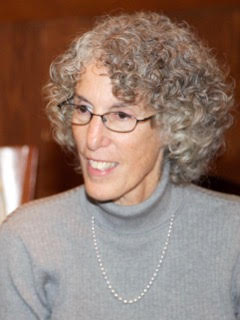Emerita Councilor - Laurel Milberg

She describes herself as enthusiastic but clueless as a beginning psychologist teaching family medicine residents. I was given one hint: I was to conduct Balint Groups. It was a very good hint, indeed. Balint work remained the single most potent tool I had for creating a safe but challenging environment where trainees can learn and grow to be competent personal physicians. It is how I did my job.
As one of the founding members of the ABS, she participated in many ways, among them: organizing the first American Balint weekend; serving as faculty at the first leadership intensive; attending the first meeting to credential leaders; helping to write the first by-laws; co-authoring the document structuring Leader Credentialing and Credentialing Intensives; structuring the policies and procedures guiding the operation of the CCC and the Intensives Committee; serving as the first Secretary/Treasurer, then as President of the Council from 1995 – 1999. Her roles grew as the Balint movement grew in the country, and she was one of the first Leader Supervisors designated by the society. Her Pitfalls and Potholes article remains a staple support of leaders striving to establish groups.
Laurel retired in 2010 from everything but grand-mothering, gardening, ice skating and Balint work, to live in Northampton, MA. In 2011 she wrote The Evolution of Balint Leader Training and Credentialing in the American Balint Society for the 17th International Balint Congress.
Laurel has greatly furthered her stated interests in the ABS: to help establish leadership training and credentialing, to develop a sustainable organization, and to document the skills of leadership. Her signature combination of incisiveness and constructiveness has formed and informed much of the Society’s work in its first decades. With remarkably reciprocal generativity, she and Balint groups have served each other well. – Approved by ABS Council July, 2012